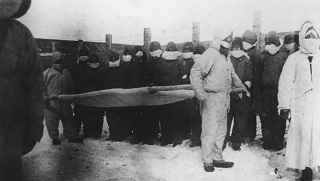Controlling epidemics? The WHO had the answer 40 years ago
Alison Rosamund Katz

The largest plague outbreak in the 20th century occurred in
Manchuria between 1910 and 1911. Approximately 60,000
people died. The plague still occasionally causes smaller out-
breaks in parts of sub-Saharan Africa.(Deadly Diseases:
Epidemics throughout history, HultonArchive/GettyImages)
For once, everyone agrees. The only way to deal effectively with Covid 19 is through comprehensive, equitable, universally accessible health systems. This was precisely the solution proposed to countries by the World Health Organization (WHO) at the International Conference on Primary Health Care[1] held in 1978 in Alma Ata, in the former Soviet Union.
If WHO’s magnificent social justice project had been supported, all countries today would be adequately equipped to deal with the current health crisis – and all common health problems. But Primary Health Care was not supported. On the contrary, within a couple of years, its social and economic justice foundations were more or less destroyed and the project was progressively dismantled over the next decade.
WHO’s powerful member states, their transnational companies and the international financial institutions, are largely responsible for preventing the establishment and maintenance of functioning, equitable health systems in poor countries and for weakening and dismantling health services in rich countries. They will have a lot to answer for in the coming months.
Primary Health Care is still the solution but WHO’s various attempts at revival have met with fierce resistance from private interests. Never has it been more important for citizens to support and reappropriate the social justice constitutional mandate of the WHO which – for better or for worse – is still the people’s international health authority.
























